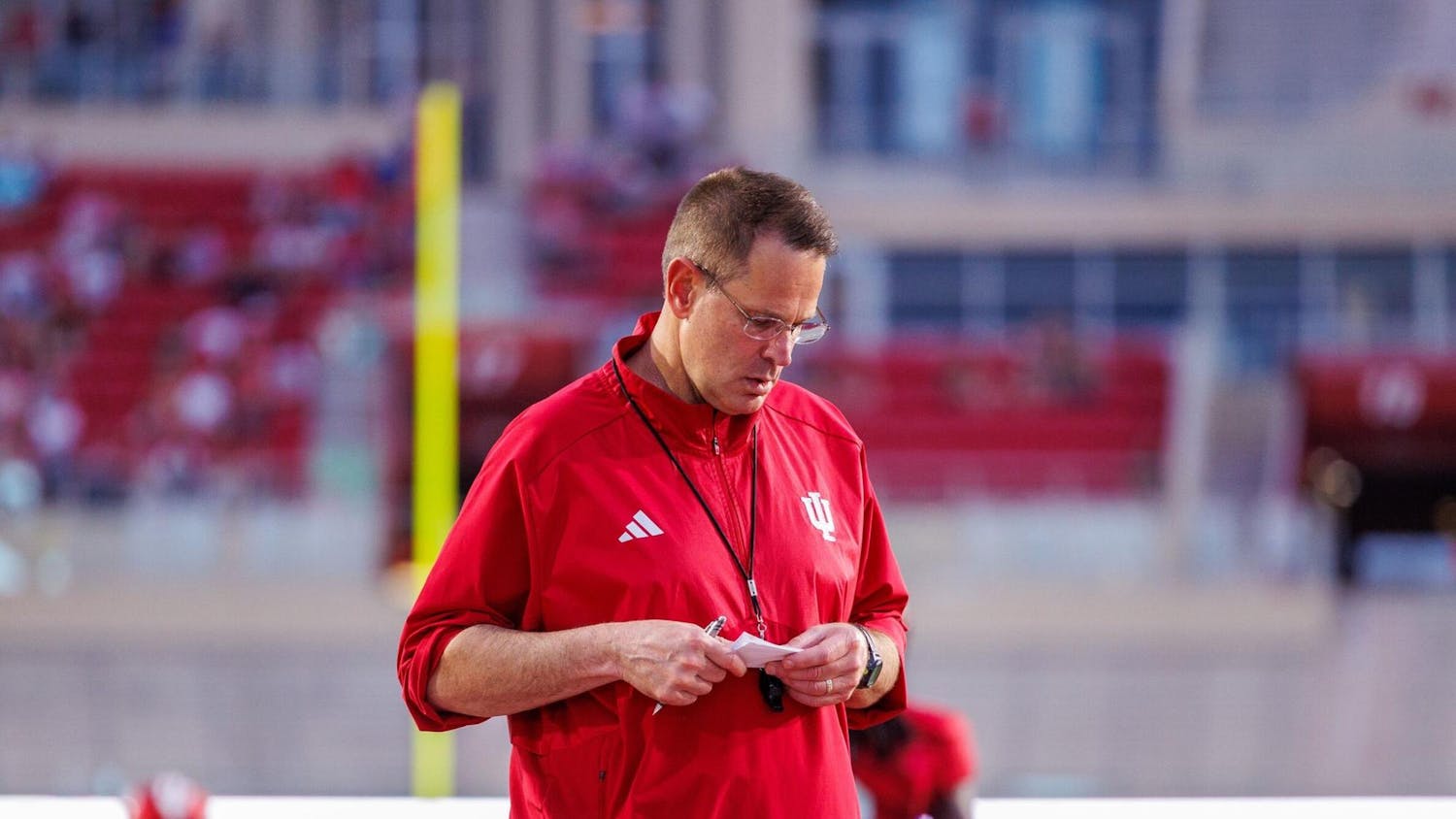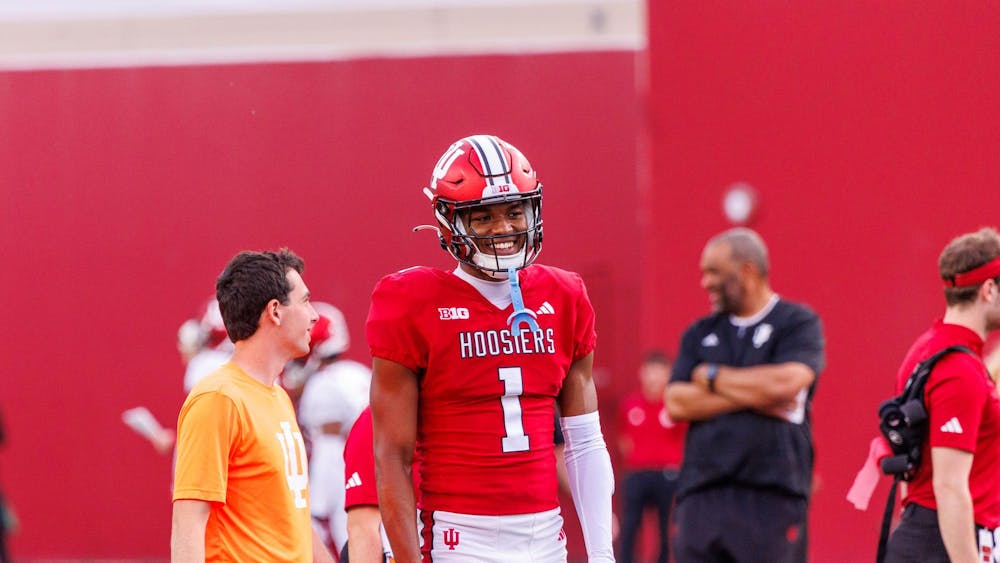Freedom Indiana, an organization that argues in favor of legislation that protects LGBT Hoosiers from discrimination against their sexuality, gender or gender presentation, invited supporters to write letters, postcards or emails to lawmakers, communications director Jennifer Wagner said.
Others showed up in person at noon to convey to legislators the importance of expanding protections for gender and sexual minorities, Wagner said.
“Quite honestly, we live in a state where lawmakers don’t often hear from people on the issues that are really, really important,” Wagner said.
Tuesday, the unofficial start of the legislative season, was the organization’s first opportunity to get all of the lawmakers in the same area, Wagner said.
Chris Paulsen, Freedom Indiana’s campaign manager, said four speakers, including a transgender man who had served in the military, the mother of a transgender son and a pastor who felt his granddaughter was inadequately protected under the current law, shared their stories in the Statehouse.
After its fight against the Religious Freedom Restoration Act, Wagner said Freedom Indiana turned its attention to adding gender and sexuality to Indiana’s existing civil liberties act.
Gender and sexual minorities can still be fired or denied housing because of their sexuality or gender identity, Wagner said.
“I don’t want to say that RFRA was a good thing for Indiana — it was a terrible thing for Indiana — but it shed a light that these issues are still (here),” Wagner said.
Republican leadership sent a draft of a bill Tuesday that could, upon passing, provide more protections for LGBT Hoosiers.
The bill “prohibits discriminatory practices in acquisition or sale of real estate, housing, education, public accommodation, employment, the extending of credit, and public contracts based on military active duty status, sexual orientation or gender identity.”
However, the bill also “provides protection for religious liberty and conscience.”
The bill states it will establish policies to protect organizations, employers or religious affiliates from unfounded charges of discrimination apart from protecting Indiana residents from discrimination based on their “actual or perceived” sexuality or gender identity.
The bill also claims it will protect an individual’s rights to religious beliefs and conscience.
Some of the language proposes fining complainants as much as $1,000 if a complaint appears “frivolous” or “intended to harm the subject of the complaint.”
The bill also addresses gay marriage and states that no local agency may refuse to issue or withhold a marriage license or permit.
“Just updating our existing (civil liberties) code is pretty simple,” Paulsen said. “Adding gender and sexual identity to the existing bill is cleaner.”
Paulsen said the language already works to protect Indiana residents based on age, race, religion and sex — and using the same words to cover LGBT residents is Freedom Indiana’s goal.
Paulsen cited a memo by former Republican pollster Christine Matthews of Bellwether Research, which indicated many Indiana residents support adding sexuality and gender identity to Indiana’s civil rights law.
According to the memo, 55 percent of poll respondents supported adding LGBT protections to the civil rights law, while 33 percent opposed doing so.
Eighty-six percent of respondents said they thought LGBT residents faced some sort of discrimination, and more than half characterized the level of discrimination as “a great deal,” rather than a moderate amount.
The memo also delved into political repercussions for lawmakers who did not support LGBT non-discrimination.
According to the poll, 47 percent of voters indicated they would be more likely to vote for a governor who supported LGBT civil rights. Thirty-two percent indicated they would be less likely to support that candidate.
Paulsen estimated between 275 and 300 people attended the short, middle-of-the-day rally.
She said about 5,300 letters were also passed along by clergy members who support Freedom Indiana’s goal.
The letters — many written by invested supporters of gay and transgender civil liberties — were organized by lawmakers and dropped off before the rally, Wagner said.
After this first contact, Freedom Indiana and its affiliates will continue contacting Indiana lawmakers through the legislative session, Wagner said.
“We’ll be back in January,” Wagner said. “This is something we know we have to keep pushing for — it’s not going to happen without that grassroots effort.”





